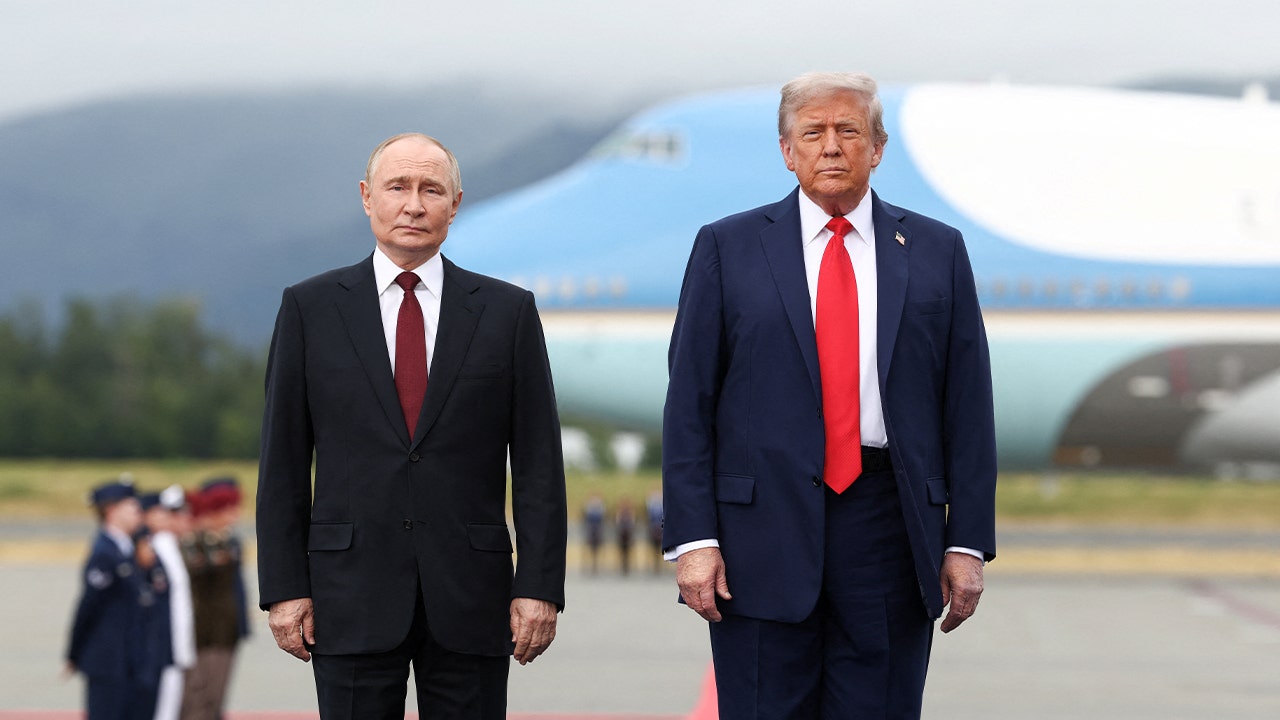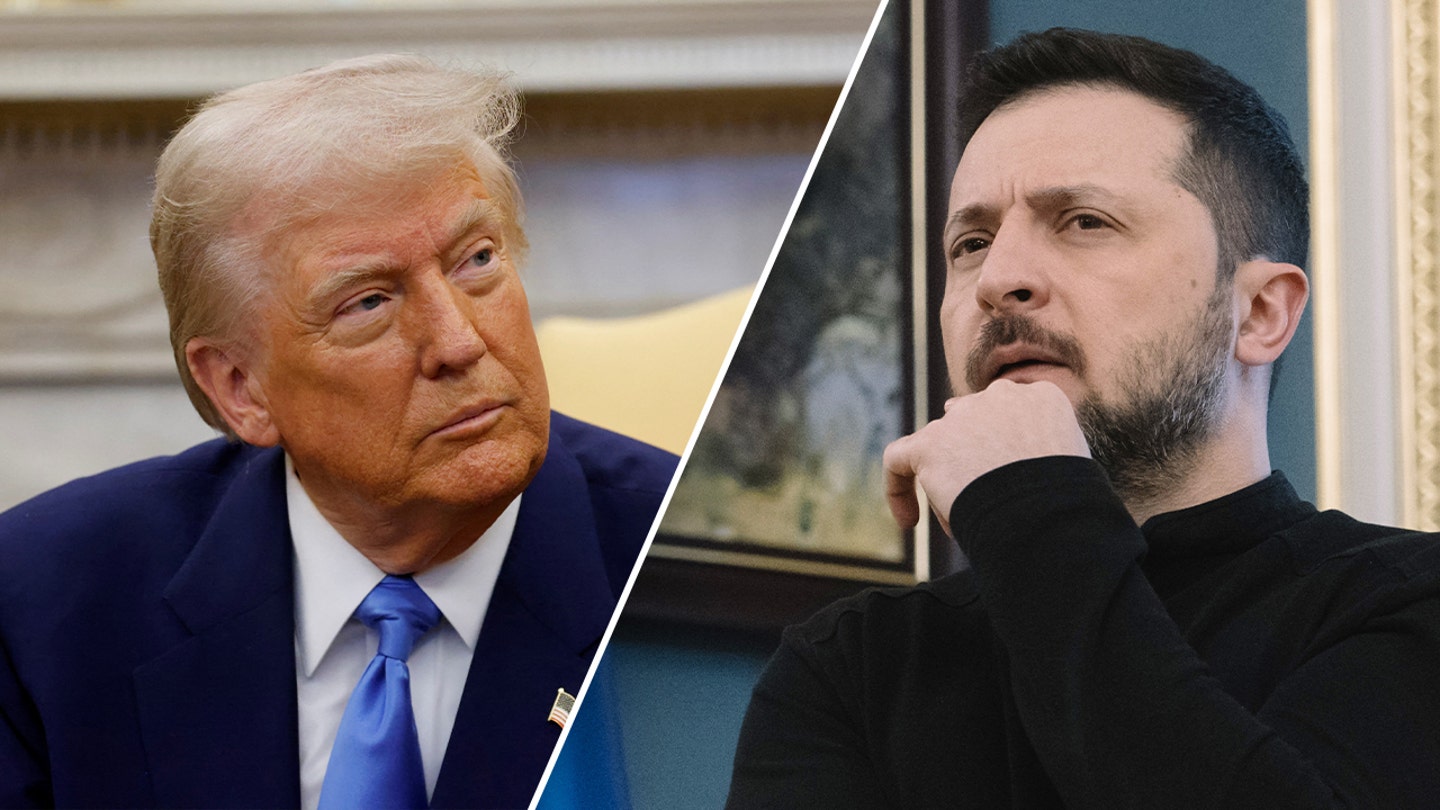
Rubio hails Trump as 'only leader in the world' who can broker Ukraine peace deal after talks
Entities mentioned:
- Marco Rubio: Loyalty, Influence, Competitive spirit
- Donald Trump: Power, Recognition, Influence
- Joe Biden: Obligation, Security, Duty
- Volodymyr Zelenskyy: Self-preservation, Duty, Determination
- Vladimir Putin: Power, Control, Influence
- NATO: Security, Unity, Duty
Article Assessment:
Credibility Score: 55/100
Bias Rating: 75/100 (Lean Right)
Sentiment Score: 65/100
Authoritarianism Risk: 45/100 (Mixed/Neutral)
Bias Analysis:
The article leans right, primarily due to its uncritical presentation of Republican viewpoints and criticism of the Biden administration. It relies heavily on Marco Rubio's statements without offering contrasting perspectives or fact-checking claims about Trump's peace-brokering abilities.
Key metric: Diplomatic Influence
As a social scientist, I analyze that this article presents a shift in the U.S. approach to the Ukraine-Russia conflict under the Trump administration. The narrative emphasizes Trump's alleged unique ability to broker peace, contrasting it with the perceived ineffectiveness of the Biden administration. This framing potentially impacts U.S. diplomatic influence by suggesting that Trump's personal relationships with world leaders are key to resolving international conflicts. The article's focus on changing dynamics in weapon supply and funding methods also indicates a potential shift in international perceptions of U.S. foreign policy. However, the heavy reliance on Rubio's statements without significant counterbalancing perspectives raises questions about the comprehensiveness of the analysis presented.

MORNING GLORY: Can President Trump deliver a ceasefire or even a peace agreement between Russia and Ukraine?
Entities mentioned:
- Donald Trump: Power, Influence, Legacy
- Vladimir Putin: Power, Control, Influence
- Volodymyr Zelenskyy: Duty, Self-preservation, Unity
- Donald Rumsfeld: Professional pride, Influence, Security
- Hugh Hewitt: Influence, Professional pride, Curiosity
- Media: Recognition, Influence, Greed
Article Assessment:
Credibility Score: 70/100
Bias Rating: 65/100 (Lean Right)
Sentiment Score: 55/100
Authoritarianism Risk: 35/100 (Generally Democratic)
Bias Analysis:
The article leans right due to its favorable portrayal of Trump's diplomatic efforts and criticism of media reporting. However, it maintains some balance by emphasizing the uncertainty of outcomes and citing examples of successful diplomacy.
Key metric: Diplomatic Influence
As a social scientist, I analyze that this article primarily focuses on the uncertainty surrounding diplomatic negotiations between the US, Russia, and Ukraine. The author, Hugh Hewitt, emphasizes the importance of acknowledging the limits of public knowledge in high-stakes diplomacy. He criticizes media sources claiming inside knowledge of these meetings, suggesting that such claims are either misinformation or clickbait. The article indirectly highlights the potential for US diplomatic influence, particularly through Trump's involvement, but cautions against premature conclusions. This measured approach to assessing diplomatic progress could impact the US's perceived diplomatic influence on the global stage, especially in conflict resolution efforts.

Takeaways from Trump’s meetings with Zelensky and European leaders
Entities mentioned:
- Donald Trump: Power, Influence, Legacy
- Volodymyr Zelensky: Security, Determination, Unity
- Vladimir Putin: Power, Control, Influence
- Emmanuel Macron: Unity, Influence, Security
- Friedrich Merz: Unity, Security, Duty
- JD Vance: Loyalty, Duty, Influence
- Marco Rubio: Duty, Influence, Ambition
- Steve Witkoff: Duty, Loyalty, Influence
Article Assessment:
Credibility Score: 75/100
Bias Rating: 55/100 (Center)
Sentiment Score: 55/100
Authoritarianism Risk: 40/100 (Generally Democratic)
Bias Analysis:
The article presents a relatively balanced view of the events, including multiple perspectives from different leaders. While it focuses heavily on Trump's actions and statements, it also includes European viewpoints and Ukrainian reactions.
Key metric: Diplomatic Influence
As a social scientist, I analyze that this article highlights a significant shift in U.S. foreign policy approach towards the Russia-Ukraine conflict. Trump's willingness to consider U.S. troop involvement in security guarantees for Ukraine marks a departure from his previous isolationist stance. This change could potentially increase U.S. diplomatic influence in Europe and alter the dynamics of peace negotiations. The hastily arranged meetings with European leaders and Zelensky demonstrate the urgency of the situation and the central role the U.S. is playing in peace efforts. However, Trump's reversal on the need for an immediate ceasefire indicates a potential misalignment with European allies, which could impact the cohesiveness of the Western response to the conflict. The article also reveals the delicate balance of personal diplomacy, as evidenced by the improved atmosphere in the Zelensky-Trump meeting compared to their previous encounter.

Zelenskyy to meet with Trump in Washington, DC following US-Russia talks
Entities mentioned:
- Volodymyr Zelenskyy: Self-preservation, Duty, Unity
- Donald Trump: Legacy, Influence, Recognition
- Vladimir Putin: Power, Control, Influence
- Mark Rutte: Duty, Unity, Security
Article Assessment:
Credibility Score: 65/100
Bias Rating: 65/100 (Lean Right)
Sentiment Score: 60/100
Authoritarianism Risk: 45/100 (Mixed/Neutral)
Bias Analysis:
The article leans slightly right, primarily due to its reliance on Trump and Fox News as primary sources. While it includes perspectives from multiple parties, there's a noticeable emphasis on Trump's role and statements, potentially overemphasizing his influence in the peace process.
Key metric: Diplomatic Influence
As a social scientist, I analyze that this article highlights a significant shift in diplomatic dynamics surrounding the Russia-Ukraine conflict. Trump's direct involvement in negotiations with both Putin and Zelenskyy suggests a potential change in the U.S. approach to the conflict. The proposed trilateral meeting indicates a move towards more direct diplomacy, bypassing traditional international frameworks. This could impact the U.S.'s diplomatic influence by positioning it as a key mediator in the conflict, potentially altering its relationships with both Ukraine and Russia, as well as with NATO allies. The emphasis on a 'Peace Agreement' over a 'Ceasefire Agreement' suggests a push for a more permanent solution, which could have far-reaching implications for regional stability and U.S. foreign policy objectives in Eastern Europe.